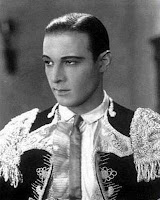Sited by many as one of the
greatest novels of the twentieth century, F. Scott Fitzgerald’s The Great Gatsby is a book that I have
never read. As a result this review will be based purely on the Baz Lehrmann
film and not informed in any way, shape or form by the source text. Lehrmann is
a director who I generally have little time for. His in your face, ultra
heightened fantasy style is not normally to my liking but a film set amongst
the excess of post war, roaring 20s is the sort of project which may perfectly
suit his visual eye. With The Great
Gatsby, Lehrmann creates a film which is full of cinematic choices which
are both at the same time wrong and fitting and while I don’t necessarily agree
with all (or in fact most of his choices), he has created a film which sets
itself apart from the competition and is both bold and exciting.
Nick Carraway (Tobey Maguire) is
a graduate of Yale University who moves to New York’s
Long Island, home of the rich and famous, with
the hopes of making his fortune in the blossoming stock market on Wall Street,
twenty miles to the west. Carraway’s neighbour is an enigmatic figure called
Gatsby (Leonardo DiCaprio), a man who few know or have even met, yet a man whose
name and lavish parties are known by everyone from Senators to starlets to
smugglers. Gatsby befriends his neighbour but remains somewhat aloof until one
day when the rich inscrutable Gatsby requests help in setting up a meeting
between himself and Carraway’s beautiful but married cousin Daisy (Carey
Mulligan), a woman not unknown to Gatsby.






.jpg)




